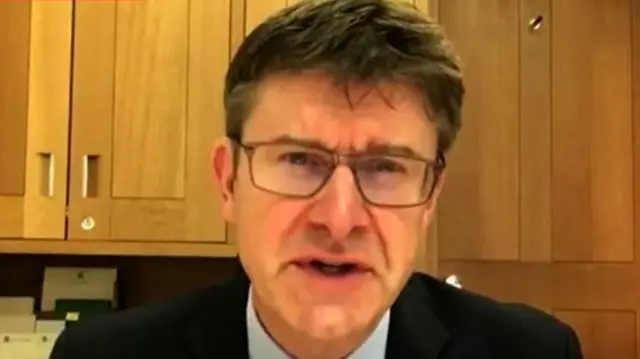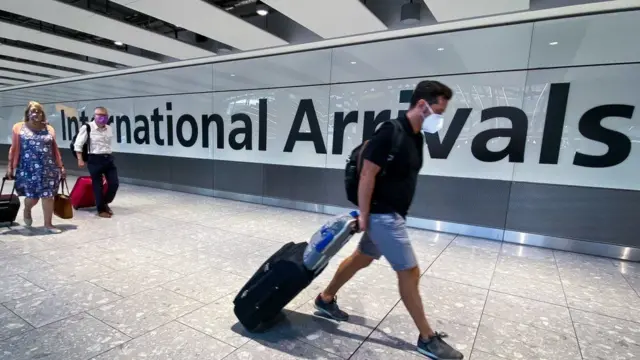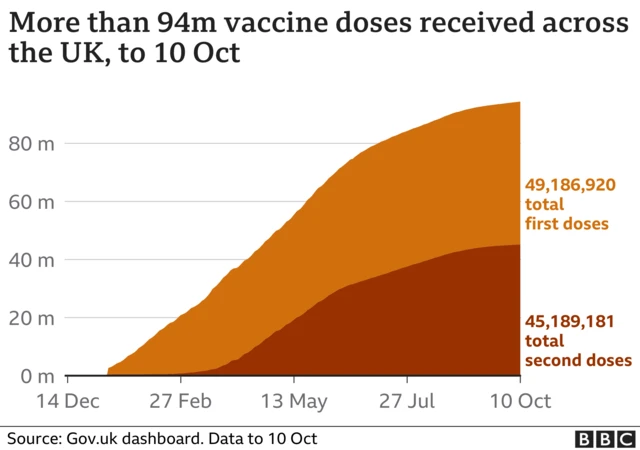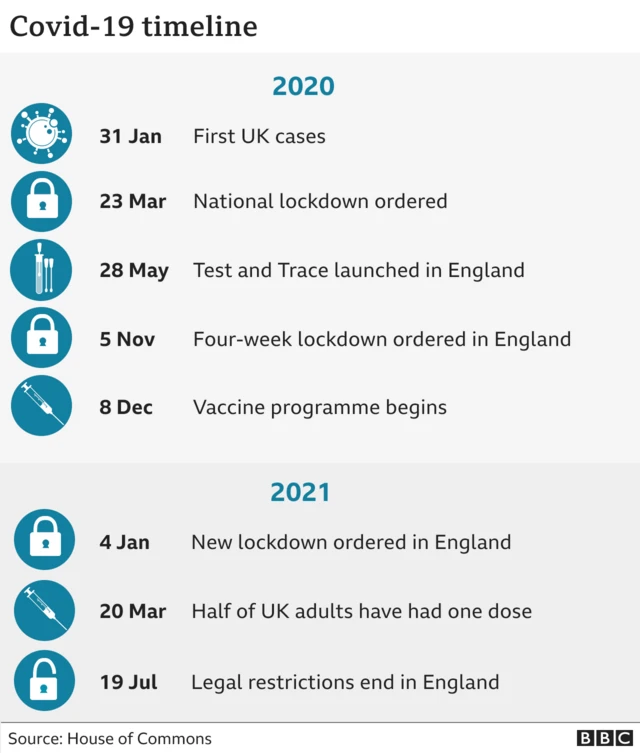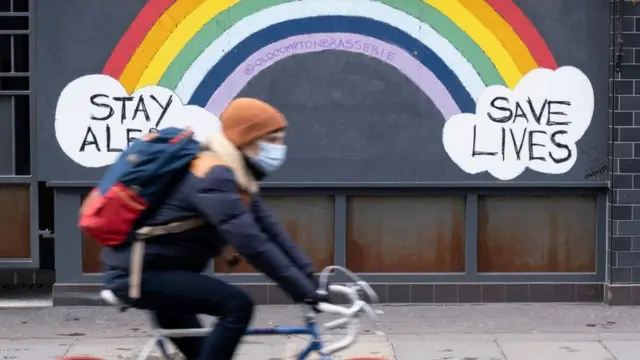UK should have been 'more rigorous' on care homespublished at 08:36 BST 12 October 2021
The discussion turns to how Covid spread through care homes, and Greg Clark is asked whether one of the biggest mistakes was not testing people who were discharged from hospital to care homes.
He replies: "Yes it was," adding that if there had been enough testing capacity to test everyone leaving hospitals for care homes, "undoubtedly we could have stopped this seeding of infections into care homes".
Clark adds that even with the limited testing capacity we had at the time, the government should have been "more rigorous" in the regime for discharging people from hospital into care homes, saying the rules should have been tougher on putting those people into isolation.
Overall, more than 39,000 care home residents died with the virus between 10 April 2020 and 31 March 2021.
However, Clark disagreed that the public inquiry into the government's handling of the pandemic - scheduled for next spring - should be brought forward, adding that reconstructing what happened would take "some time" but that the MPs' inquiry hoped to put lessons learnt into practice now.
